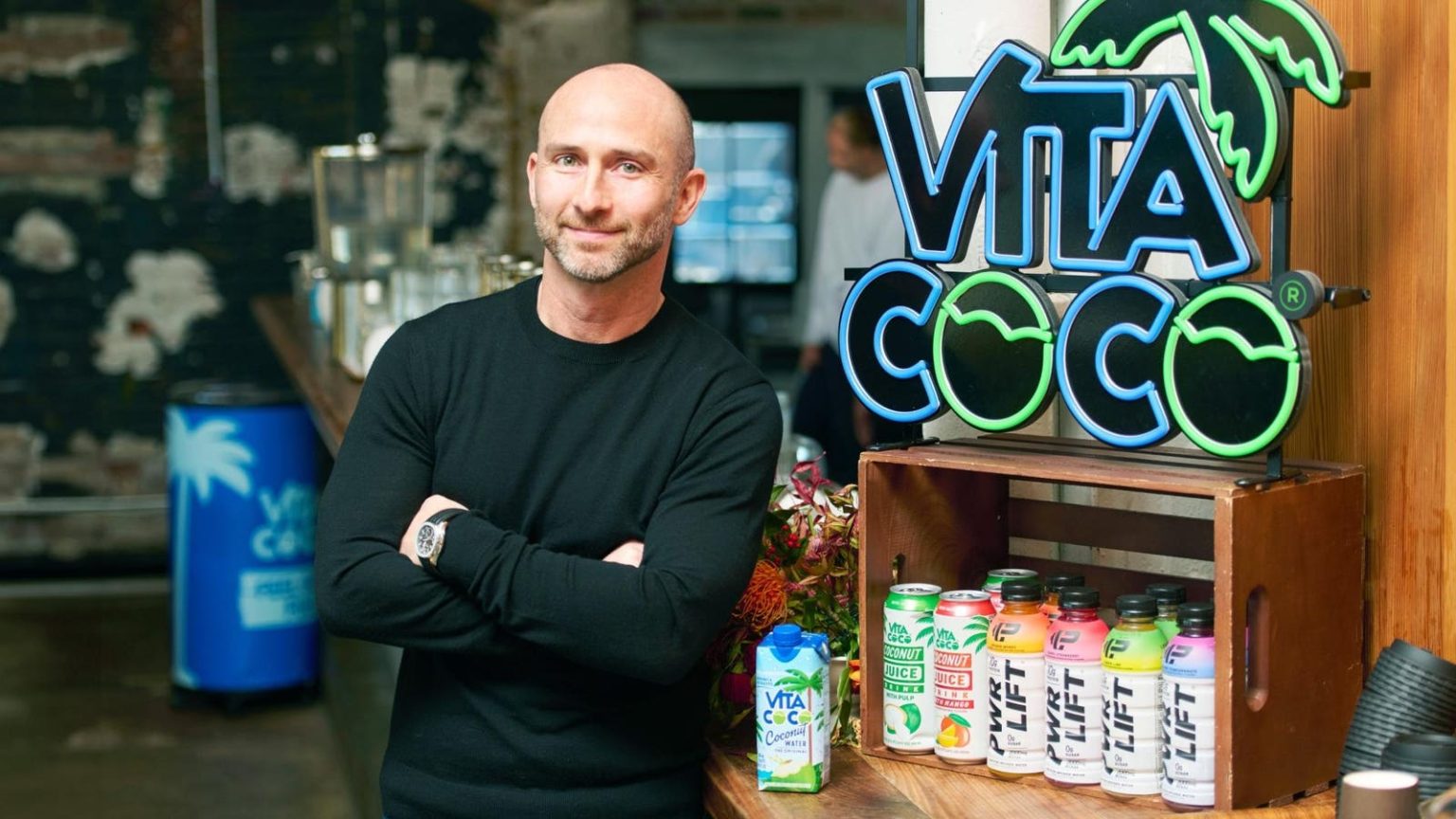Vita Coco’s Coconut Water Empire Faces Trump Tariff Turbulence
In the competitive world of health beverages, New York-based Vita Coco has established itself as the undisputed leader in coconut water, outmaneuvering even industry giants like Coca-Cola and Pepsi. Founded in 2003 after a chance meeting between friends in a Manhattan bar, the company rode early momentum with celebrity investors including Madonna, Demi Moore, and Matthew McConaughey. Despite a challenging decade marked by thin margins, distribution problems, and a rocky 2021 IPO, Vita Coco has engineered an impressive turnaround. The company has diversified its portfolio with protein-infused PWR LIFT, aluminum-canned Ever & Ever water, and the coconut-milk-based Vita Coco Treats line. This strategic expansion helped the stock surge 133% since its IPO and an astonishing five-fold increase from its 2022 low, making it a standout performer in the Russell 2000 and earning a spot near the top of Forbes’ Best Small Companies ranking in 2024.
However, Vita Coco now faces an unprecedented challenge as Donald Trump’s proposed tariffs threaten to upend its business model. With 96% of its revenue derived from coconut water and 100% of its supply coming from tropical countries targeted by steep tariffs, the company finds itself in a precarious position. Brazil, historically Vita Coco’s largest coconut source, faces a proposed 50% tariff. The company’s six alternative sourcing countries aren’t spared either, with tariffs ranging from 19% for the Philippines to 46% for Sri Lanka. Despite these looming threats, Vita Coco’s stock has remained relatively resilient, up nearly 32% over the past year and outperforming many better-known consumer staples companies, though it has dipped about 5% year-to-date as the broader market rallies.
Co-founder and executive chairman Michael Kirban projects confidence in the face of these challenges, dismissing concerns about Brazil as “really a nonissue.” The company has already begun reallocating its Brazilian supply to European and Canadian markets while shifting product from the Philippines, Sri Lanka, and Malaysia to the United States. “This is something we can pull the trigger on really quickly,” Kirban asserts, seemingly unconcerned about the high tariffs in these alternative source countries. He points to decreasing ocean freight rates and price increases implemented earlier this year to offset the initial 10% baseline tariffs as factors that position the company well. Kirban optimistically claims Vita Coco won’t need to pass further price hikes to consumers in the coming months, though this may prove wishful thinking if Trump maintains his aggressive tariff stance on tropical countries.
The company’s dominant market position gives some analysts confidence in its ability to weather the tariff storm. By partnering with seven of the world’s largest coconut processors, Vita Coco controls approximately 40% of the U.S. coconut water market, far ahead of competitors like Goya and Harmless Harvest. Larry Carlin, an equity analyst at Conestoga Capital Advisors, notes that even Coca-Cola and Pepsi failed in their attempts to capture this market, with Coca-Cola eventually abandoning its Zico brand. “They’ve developed a supply chain with substantial barriers to entry,” Carlin observes, suggesting this established infrastructure might provide Vita Coco with greater flexibility amid tariff pressures. Wall Street appears to share this optimism, with six of ten analysts covering the stock rating it a “buy” and the remaining four giving it a “hold” rating.
However, not everyone shares this positive outlook. UK-based short-seller NINGI Research released a scathing 23-page report in March 2025, describing Vita Coco as a “one-trick pony” and an “operational basket case.” The report highlighted several underlying business problems, including failed diversification attempts, supply chain disruptions, and millions in insider stock sales. Its most damaging claim involved Vita Coco losing its large private-label contract with Costco due to supply chain mismanagement. Though the company publicly disputed the report as containing “inaccuracies and mischaracterizations,” subsequent financial results seem to validate some of NINGI’s allegations. Vita Coco’s Q2 2025 earnings confirmed a substantial 36.5% decline in private-label sales, and Costco now appears to have replaced Vita Coco products with its own Kirkland Signature coconut water, sold at a significant discount—$12.99 for a 12-pack versus $19.59 for Vita Coco’s equivalent at Target.
Despite these challenges, Kirban remains characteristically optimistic about Vita Coco’s future. On the company’s second quarter earnings call, CFO Corey Baker revealed that Vita Coco is pursuing a formal tariff exemption request with U.S. trade officials. If this effort fails, management has warned shareholders to prepare for price increases: “If [the 50% Brazilian tariff is] enacted, we would ultimately need to pass through price increases,” Baker acknowledged, while expressing confidence that even in a worst-case scenario, the company could implement price hikes while maintaining market share. Kirban echoes this sentiment, noting that sales continue to perform well despite recent price increases. “I think consumers are willing to pay,” he says, emphasizing the product’s natural origins and superior nutritional profile. “This is a product that comes from a tree. It’s not created in a lab, and it is three and a half times the electrolytes of the leading sport drink.” Whether this premium positioning will be enough to overcome the potential impact of significant tariff-induced price increases remains to be seen, as Vita Coco navigates perhaps the most challenging period in its two-decade history.


